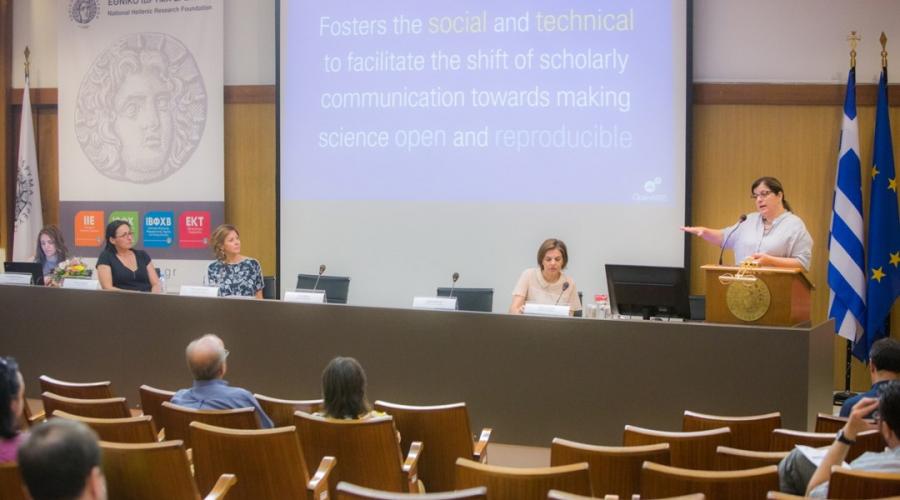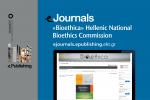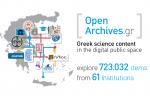
The scientific conference ‘Open Science: Critical Issues and Future Prospects’ took place on Thursday 15 June 2017, at the National Hellenic Research Foundation. The Open Science event organized by the National Documentation Centre (EKT) provided a forum for the discussion and exchange of ideas and best practices between the key stakeholders in the transition to the open science/ open access paradigm. The high turnout along with the lively discussions that took place confirmed the increasing interest of the Greek research community and other key stakeholders in the opportunities created by open science as well as the necessity and importance of organizing similar initiatives. The presence of young researchers creates further promising prospects for the adoption of open science practices.
The first session focused on the presentation of European and national initiatives such as the European strategy on open access to publications and data, the European Cloud initiative and the European Open Science Cloud (EOSC) the latter being a key pillar of the European Cloud initiative.
Participants had also the opportunity to learn more about OpenAIRE – the European infrastructure for the support of Open Science- and the ways in which it assists scholarly communication through (among others) its extensive network of experts. Moving from infrastructures to policies, the presentation of the key messages from the PASTEUR4OA project examined the variety of strategies adopted by national stakeholders in the adoption and alignment of open access policies with the European framework. Policy support is currently provided to policy makers through OpenAIRE.
Presentations on the strategies adopted in Greece (The Technical University of Crete) and Cyprus (national open access strategy) and the content of the policies provided important insights and confirmed the importance of stakeholder collaboration and the positive impact of awareness raising actions. The first session concluded with the examination of the challenges posed by the transition from the subscription based model to full open access and the initiatives taken by member states in support of open access.
The discussion that followed confirmed that while the existence of infrastructures (namely repositories) in Greece is a welcome first step towards the transition to open science, they need to be complemented by the adoption of policies.
The second session comprised a series of presentations on available resources, tools and training to support researchers in complying with the Horizon 2020 open access mandate. These included the training material developed by FOSTER project, the tools to assist researchers in writing their data management plans such as the DMPonline developed by the Digital Curation Centre, and the wide range of resources and support provided by the OpenAIRE National Open Access Desk (NOAD) network. Information was also provided on the Greek participation of the FP7 post-grant pilot and eligibility procedures given that the pilot has been extended until February 2018. A Greek researcher from Encompass EU funded project talked about his experience on open linked data in the energy sector.
Recording and ppts are available here.
A more extensive report in Greek is available here.















